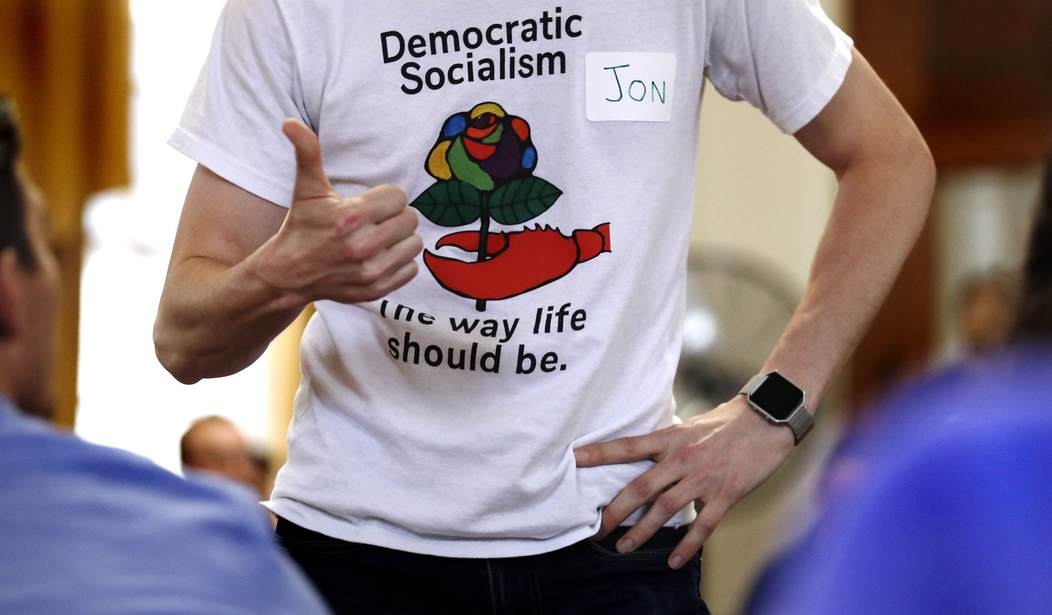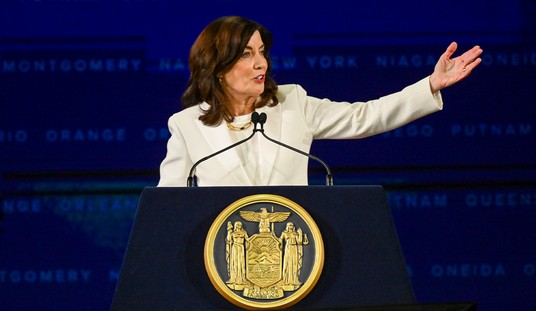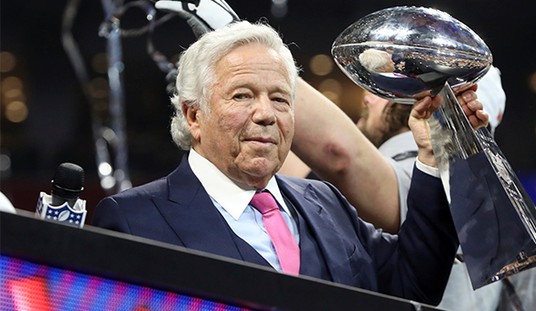In his 2019 State of the Union address, President Trump drew cheers from mainstream America with his clear and compelling statement that America was founded on liberty and will never become a socialist country. But not everyone cheered, and it is telling that an American president even felt compelled to make such a statement. As the Democrats have become increasingly radicalized and openly supportive of socialism, President Trump saw the need to name the threat out loud and to rally freedom-loving Americans to defend their birthright.
Why is socialism even considered a possibility in America, a country that once prided itself on being “the land of the free?”
A new poll of 1,000 likely voters by McLaughlin Associates offers answers to that question. Conducted in March in conjunction with United in Purpose, a non-partisan group working to improve public policy by promoting the traditional values of America’s founders, the poll offered an in-depth look at opinions about socialism as compared with free market capitalism.
Overall, when asked to agree or disagree with the statement that socialism is fairer than free market capitalism, 31.3 percent of respondents agreed and 54.1 percent disagreed. Though a majority disagreed, conservatives should be concerned that almost one in three likely voters saw socialism as fairer than free enterprise and that America’s youth have been especially taken in by the far left’s messaging, with 46.8 percent of those 18-29 agreeing with the statement. Agreement declined with age to only 15.4 percent among those over 65.
The results showed a clear partisan and ideological division that has dramatic implications for the 2020 primaries and general election, especially for Democrats. Half of Democrats (50.1 percent) agreed with the statement that socialism is fairer than free market capitalism, and only 31.4 percent disagreed. Self-described liberals, who comprise the Democrats’ base, were even further to the left, with 60.9 percent agreeing and only 29.0 percent disagreeing.
Recommended
The positive view of socialism among Democrats is good news for young radicals like Ocasio-Cortez who are challenging the establishment for control of the party, but it could mean serious trouble for the Washington insiders currently running the party. In order to appease their radicalized base in the primaries, old-guard liberal Democrats like Nancy Pelosi will have to swing even further left, yet the poll results suggest that such a strategy will put their party further at odds with center-right mainstream voters in the general election. Solid majorities of Republicans (71.7 percent) and Independents (61.8 percent) disagreed with the idea that socialism was fairer than free enterprise, and results for ideology showed the same pattern with 76.2 percent of conservatives and 53.5 percent of moderates disagreeing.
Politics is ultimately a struggle about moral concerns. People support political and economic policies that they believe will bring about morally desirable conditions, and the poll provided an in-depth look at the personal values underneath the positive and negative opinions of socialism.
The poll looked into those deeper moral concerns by asking respondents to rate how much they agreed or disagreed that certain value-laden words and phrases were true about socialism — words such as fair, compassionate, better for the people, intolerant or controlling. Liberals were far more likely than conservatives to see socialism as associated with positive values such as fair (23.0 percent to 2.5 percent); compassionate (22.5 percent to 1.3 percent); and better for people (40.2 percent to 5.1 percent).
Conservatives were far more likely than liberals to associate socialism with negative terms such as controlling (64.7 percent to 18.0 percent); less individual liberty (56.1 percent to 18.6 percent); intolerant (37.8 percent to 8.1 percent); coercive (35.0 percent to 6.8 percent); and no private property rights (49.5 percent to 13.0 percent).
In addition to the subjective ratings about values and moral concerns above, the poll also asked how much respondents agreed or disagreed with one statement that can be tested against objective evidence, namely that socialism was associated with greater economic prosperity. The link between values and preferred policies was especially evident in that question. Of those who described socialism as fair, 70.4 percent actually believed that socialism was associated with greater economic prosperity. For those who described socialism as compassionate, 75.3 percent thought it led to greater prosperity.
To paraphrase Daniel Patrick Moynihan, people are entitled to their own opinions, but not to their own facts. People are free to believe the sweet-sounding rhetoric of socialism if they want, but the facts are clear. Looking at volumes of evidence from across the world, economists such as Thomas Sowell have repeatedly documented that socialism is associated with serious reductions in productivity, shortages in goods and services, and a lower standard of living, particularly for the poor. And free enterprise results in greater productivity and higher standards of living wherever it is implemented, and even those in the lower economic strata live better under free enterprise than under socialism.
So how have so many Americans come to believe things about socialism that are demonstrably false? The poll offers some clues. Over one in four high school graduates (26.6 percent) agreed that socialism was fairer than free enterprise, which is concerning enough, but agreement rose to 35.9 percent among college graduates and up to 42.6 percent among those with post-graduate training.
The longer people stay in school, the more misinformed they are about socialism. What is being taught in America’s schools?
Obviously, not economic reality.
























Join the conversation as a VIP Member